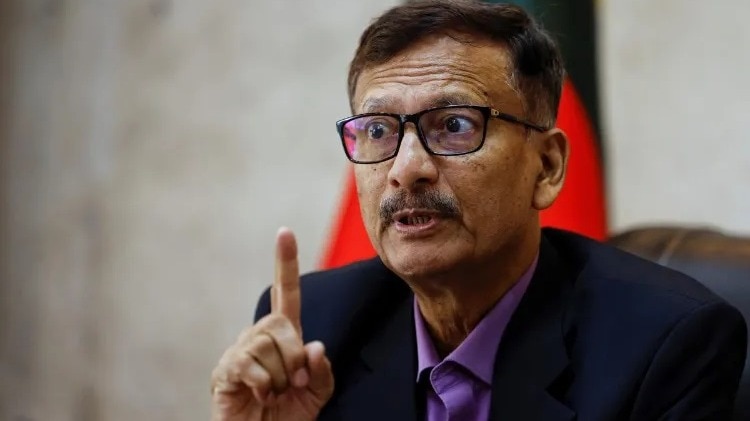Amid an ongoing diplomatic dispute over the arrest of a Hindu priest, Bangladesh reiterated that India must address Dhaka’s longstanding concerns to enhance bilateral relations, while expressing optimism about maintaining positive ties with mutual interests safeguarded.
Bangladesh’s Foreign Affairs Adviser, Touhid Hossain, acknowledged a shift in the relationship between the two nations since August 5, referring to it as an undeniable “reality”.
“After August 5, relations with India have been changed and this is the reality,” said Hossain. He emphasised that Bangladesh have to build a relationship with India “in view of this reality.”
“I believe India will understand how to take forward relations with Bangladesh under the changed circumstances,” Hossain said.
Ousted Prime Minister Sheikh Hasina had to flee her country on August 5 afternoon following a swift and violent regime change. Hasina narrowly escaped a violent mob and was forced to take refuge in India after arriving in a Bangladesh Air Force.
Hossain emphasised that India must address Bangladesh’s persistent concerns to improve their bilateral ties. He pointed out that while Bangladesh’s previous government made efforts to address India’s concerns, India had not reciprocated by addressing Bangladesh’s issues.
The diplomatic rift between India and Bangladesh escalated after Hindu priest Chinmoy Krishna Das, a former member of the International Society for Krishna Consciousness (ISKCON), was arrested at Dhaka’s Hazrat Shahjalal International Airport.
Das, who also serves as a spokesperson for the Bangladesh Sammilita Sanatani Jagran Jote, was denied bail and remanded in jail by a Chattogram court in connection with a sedition case. This led to violent clashes between his supporters and security forces, resulting in the death of a lawyer.
Hossain made these comments during a roundtable discussion titled ‘Bangladesh-India Relations: Expectations, Barriers, and Future,’ organised by the South Asian Institute of Policy and Governance (SIPG) and the Department of Political Science & Sociology at North South University, according to the Bangladesh Sangbad Sangstha (BSS) news agency.
While acknowledging the change in relations since August 5, Hossain remained hopeful that Bangladesh could establish a good relationship with India, ensuring the protection of both countries’ bilateral interests.
“We remain optimistic that we will be able to build a good relationship with India, ensuring our mutual interests are protected,” Hossain said, as quoted by BSS.
He also highlighted the importance of national consensus on foreign policy, noting that political divisions within Bangladesh had hindered the country’s ability to fully realise its potential.
In the wake of this week’s anti-Hindu incidents, including Das’s arrest and attacks on Hindu temples and communities, India expressed grave concern on November 29.
The Indian government urged Bangladesh’s interim administration to uphold its duty to protect all minority communities. External Affairs Minister S Jaishankar stated in Parliament that India had taken serious note of the violence against minorities in Bangladesh and stressed that it is Dhaka’s primary responsibility to ensure the safety and liberty of all citizens, including minorities.
On the other hand, Bangladesh also expressed deep concern over violent protests at its Deputy High Commission in Kolkata, urging New Delhi to ensure the security of its diplomatic missions in India.
(With inputs from agencies)

